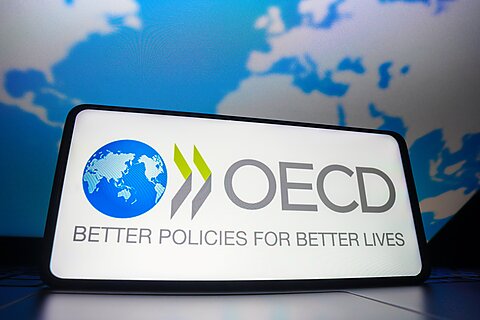
President Donald Trump issued a flurry of Executive Orders (EOs) on January 20, his first day in office. One of the orders instructed government officials to “notify the OECD [Organisation for Economic Co-operation and Development] that any commitments made by the prior administration on behalf of the United States with respect to the Global Tax Deal have no force or effect within the United States.” The notice is a welcome relief from the Biden Treasury Department’s relentless advocacy for a global tax system that would raise taxes on and depress investment by American businesses.
The OECD’s sprawling global tax effort comprises two pillars, which, taken together, threaten higher and more complicated taxes. Pillar One redistributes hundreds of billions of multinational corporate profits to countries based on customer location, regardless of a company’s physical location—upending critical protections against extraterritorial taxation. Pillar Two consists of a series of new complicated rules that enforce a global minimum tax of 15 percent and undermine the economic success of the 2017 Trump tax cuts.
Although Congress had not adopted any of the OECD rules, the Biden administration was actively coercing other countries to adopt them to create the sense that the deal was a fait accompli. Trump’s EO will help turn the tide, allowing other reticent countries to delay implementation or follow America’s lead in abandoning the entire project.
While the EO is a good start, there is more for the president and Congress to do. Under Section 2 of the EO, the Secretary of the Treasury is instructed to deliver findings and recommendations to the president on options to protect American businesses from discriminatory and extraterritorial taxes. In those findings, the secretary should recommend that the president:
Notify tax treaty partners that the United States considers the Pillar Two rules to violate existing treaty language.
Repeal country-by-country reporting regulations and stop taxpayer information exchange programs with any country implementing Pillar Two.
Withdraw the Obama-era endorsement of the protocol amending the Multilateral Convention on Mutual Administrative Assistance in Tax Matters on bulk taxpayer information exchange.
Instruct all agencies providing Part 2 voluntary OECD contributions to ensure no US funding supports work on the global tax deal.
Congress must also take decisive action to support President Trump’s executive actions and make it more difficult for future global tax projects to start.
Congress should:
Cut US funding for the Part 1 core budget and Part 2 voluntary contributions to the OECD.
Instruct the president to immediately notify the OECD and France, its depository government, that the United States will terminate the application of the Convention on the OECD and the convention’s protocols.
Repeal the Foreign Account Tax Compliance Act of 2010.
Exempt all foreign-sourced income from US tax laws.
Deliver on Trump’s promise to cut the federal corporate tax rate to 15 percent and allow full business expensing for domestic investments. Cutting the rate further would directly undercut the OECD’s project to enforce a global minimum tax of 15 percent.
The best way to undermine the OECD Global Tax Deal is by taking active steps to make the United States the most attractive place in the world to invest, build, and expand businesses. Instead of defaulting to retaliatory tariffs or other targeted tax hikes, Congress and the administration can stop the Global Tax Deal by defunding the OECD, enforcing existing treaties, and cutting taxes on businesses investing in America.
This piece draws on a similar section of the Cato Institute Report to the Department of Government Efficiency (DOGE). For further reading, see my Cato Policy Analysis, “Bold International Tax Reforms to Counteract the OECD Global Tax,” blog titled “It’s Time to Defund the OECD,” and my congressional testimony for the Way and Means Committee, “From Global Growth to Redistribution: The OECD’s Agenda to Tax American Success.”



